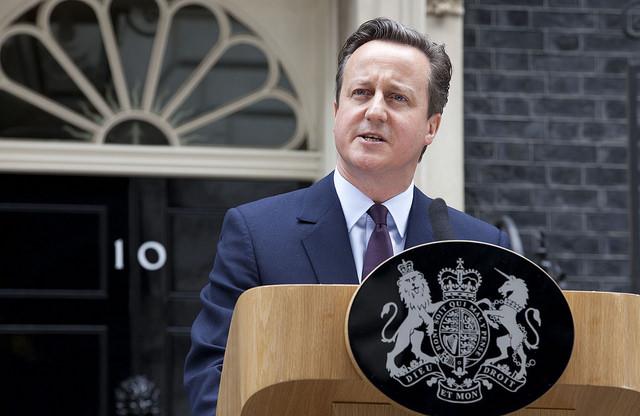Every now and then a political earthquake shakes the land; an event that alters the frame of reference for years to come. Last week’s victory by British Conservative leader David Cameron is one such occasion.
Before the vote nobody—not even the most dyed-in-the-wool Tory—had dared hope for such a result. Opinion polls had shown the government and opposition level pegging for weeks. Political pundits were predicting either a hung parliament or narrow majority for either side. And then, minutes after the last vote was cast, an exit poll was released. Taken as voters were leaving the ballot-booths it insisted a huge, sudden switch back to the conservatives would sweep the party to victory.
The Tories topped up their champagne. Labour supporters gritted their teeth.
Opposition leader Ed Miliband’s campaign team closeted themselves in his house, the one (viewers were reminded) ‘without a second kitchen’. That phrase referred to an earlier photo spread where the opposition leader had been shown supposedly relaxing with his wife in a kitchen that was immaculate and sparkling, almost as if it had never been used. It turned out this was the case. The room was a false-kitchen, a ‘spare’, constructed to look good while presenting an image of authenticity.
Voters had been amazed. Labour attempted to dismiss the event as an example of the challenger’s quirkiness—after all, he’d been a political nerd since childhood. But questions lingered. This seemed to be yet another indication the opposition leader wasn’t quite ‘normal’. The challenger didn’t seem to speak the voter’s language. On Thursday it turned out voters had decided he, too, was a pseud, an impersonation and failed to warm to him. Now the party’s been consigned to wander in the wilderness for another five years.
So what does this mean?
Half a decade is a long time. When the next election takes place the Conservatives under David Cameron will have ruled the country for a decade: long enough to alter the very fabric of society. That’s exactly his intention. Place this Tory triumph into context.
In the ’80s and ’90s, Margaret Thatcher killed off the welfare state. When Tony Blair resurrected Labour he did so by insisting his party would govern from the centre and, although some of Thatcher’s most egregious reforms were rolled back, most weren’t. When Blair was, in turn, finally wrenched from office by his deputy Gordon Brown it appeared as if ‘old Labour’ might have returned. But it didn’t. Brown inherited the financial crisis and floundered helplessly until the voters dispatched him in 2010. Since then Cameron has presided over a stable government in coalition with the Lib-Dems (Liberal Democrats). Voters decided they liked it.
At this election they didn’t just speak, they shouted. Emphatically. The green fields of England have turned conservative blue.
Unanimity hasn’t spread across the land although the Tories now have a decisive majority and will be able to implement their agenda. Two other, equally striking, clear trends have become apparent. These can be summarised in two words: identity and polarisation.
Most obvious is the demand for local autonomy. Scottish voters rejected Westminster and the Union. There are 650 seats in the UK Parliament and the Scottish National Party now holds 56 of the 60 seats north of the River Tweed. Devastatingly for the opposition, most of these were taken from Labour. Cameron won’t be able to ignore SNP demands for further devolution of power: the only question is how this will take place. Nevertheless, (and this caveat is critical) it’s the Conservatives who will frame the negotiations for a new constitutional arrangement.
Yet, the Scottish question remains an even worse lingering sore for Labour. The SNP wrested most of their gains not from the Tories, but rather from the opposition. Until Labour finds a way of reconciling demands for independence with its own ambitions in Westminster it’s difficult to see how it will ever be able to scrape up enough seats to form government. If Labour is to remain viable it will need to discover a way to allow its supporters to retain multiple identities: people are no longer prepared to subsume themselves within a single party ‘brand’.
The Scots achieved their result with concerted local campaigning. In England, the United Kingdom Independence Party (which deplores London’s close relationship with Brussels and the European Union), may have only won one seat, yet it received a huge swing. In many electorates it’s become the second largest party. Northern Ireland and Wales will also send their own representatives to Westminster. The time has arrived for a new model of federation for the United Kingdom. Politicians will need to discover a new way of engaging with this emerging local identity; a new vocabulary that can accommodate this desire for autonomy.
Most seriously this has implications for Europe. Cameron has pledged a referendum on Britain remaining in the EU. This threatens to paralyse the new government as an international player. Westminster will restrict the role it plays on the global stage for internal domestic political purposes. Other nations will emerge to occupy this space as Britain withdraws.
The next critical issue to emerge from the election is ideological and internal in nature. Under Cameron the conservative project will now take on a more radical hue-similar to the one it developed under Thatcher. Welfare is to be slashed, workers rewarded. The wealthy will be even richer. David Cameron’s first term in office saw education spending slashed by a third—the coming years will witness an even greater push towards ripping apart the welfare state, one which the opposition will be powerless to oppose. Paul Keating said when you change the government you change the country. The UK’s done that in spades.
What for the Conservatives means greater emphasis on the individual for Labour is the decline of the community. A new ideological battle is about to be joined. The only question is how far and how fast Cameron will push for change.
